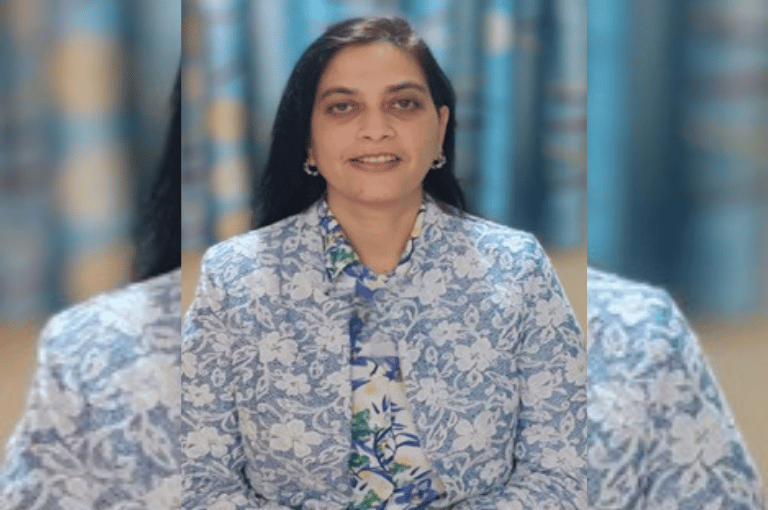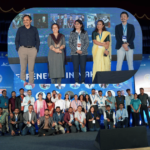Meningitis is a serious vaccine preventable infection holding significant health concerns, particularly for children. World Meningitis Day aims to raise awareness and drive global efforts to defeat this disease, promoting the lifesaving potential of early detection and it’s prevention through vaccination.
With over 2.5 million cases reported globally each year, meningitis represents a severe health crisis,[1] as nearly 70% of those who succumb to this disease, are children under the age of five.[2] Meningitis is the swelling of the lining around the brain and spinal cord (the meninges) and is usually caused by a bacterial, fungal or viral infection.
3 Clinical features of patients with meningitis vary depending on the cause, disease course (acute, sub-acute or chronic), brain involvement (meningo-encephalitis) and systemic complications (e.g., sepsis). Common symptoms of meningitis are neck stiffness, fever, confusion or altered mental status, headaches, nausea and vomiting.3 Less frequent symptoms are seizures, coma and neurological deficits (for example hearing or vision loss, cognitive impairment, or weakness of the limbs).3
India ranks amongst the top three countries with the highest number of meningitis-related deaths.4 Amongst the three pathogens causing Acute Bacterial Meningitis, Neisseria Meningitidis accounts for high case fatality rate of upto 15% despite treatment and up to 50% when untreated.5,6 Studies have shown an increase in the incidence of Neisseria Meningitidis causing Acute Bacterial Meningitis, in Indian children < 2 years.7,8
Fortunately, vaccines provide a critical line of defense against some of the most dangerous forms of meningitis, helping to protect individuals and communities. According to Dr Sampada Tambolkar, Professor and head of Unit, Department of Pediatrics Dr D Y Patil Medical College, Pune “Vaccination plays a pivotal role in safeguarding communities from outbreaks and curbing the spread of this highly infectious disease. High-risk individuals, such as those immunocompromised, college students, students going abroad, travelers, individuals living in crowded environments should prioritize vaccination.”
To combat this deadly disease, the Indian Academy of Pediatrics (IAP) recommends meningococcal vaccine as 2-dose schedule between 9-23 months and a single dose above 2 years who are at increased risk of this disease.9
If your child is aged 9 months and above, ensure they receive vaccine against Invasive Meningococcal Disease. The World Health Organization (WHO) has also launched a roadmap aimed at eliminating bacterial meningitis epidemics by 2030, endeavoring to reduce vaccine-preventable cases by 50% and deaths by 70%.10 As we observe World Meningitis Day, let us commit to protect ourchildren and communities. Taking proactive steps today can save lives tomorrow, ensuring a healthier future for all.
WHO.2021.Available at: https://www.who.int/publications/i/item/9789240026407. Accessed on: 15 November 2022.
Borko UD, Gelgelu TB, Zema Z, Alemu A, Dendir G, Israel E, Abiso TL, Woldegeorgis BZ. Determinants of mortality among pediatric patients admitted to WolaitaSodo University Comprehensive Specialized Hospital with acute bacterial meningitis, Southern Ethiopia: an unmatched case-control study. BMC Pediatr. 2023 Dec 4;23(1):610. doi: 10.1186/s12887-023-04410-6. PMID: 38044442; PMCID: PMC10694971.
Meningitis in Children: Symptoms, Causes, Diagnosis, and Treatment. Johns Hopkins Medicine. Available from: https://www.hopkinsmedicine.org/health/conditions-and-diseases/meningitis-in-children
https://www.who.int/news-room/fact sheets/detail/meningitis#:~:text=Meningitis%20is%20the%20inflammation%20of,transmitted%20from%20person%20to%20person.
Borko UD, Gelgelu TB, Zema Z, Alemu A, Dendir G, Israel E, Abiso TL, Woldegeorgis BZ. Determinants of mortality among pediatric patients admitted to WolaitaSodo University Comprehensive Specialized Hospital with acute bacterial meningitis, Southern Ethiopia: an unmatched case-control study. BMC Pediatr. 2023 Dec 4;23(1):610. doi: 10.1186/s12887-023-04410-6. PMID: 38044442; PMCID: PMC10694971.
Ghia CJ, Rambhad GS. Meningococcal Disease Burden in India: A Systematic Review and Meta-Analysis. Microbiol Insights. 2021 Nov 29;14:11786361211053344. doi: 10.1177/11786361211053344. PMID: 34866912; PMCID: PMC8637695.
Nadel S. et al, Journal of Adolescent Health 59 (2016) S21eS28
Jayaraman et al. PLOS ONE, 2018
Jayaraman et al. Vaccine 39 (2021) 3737–3744
Rao I S, et al. Indian Pediatr. Jan 15, 2024 [E-pub ahead of Print]





